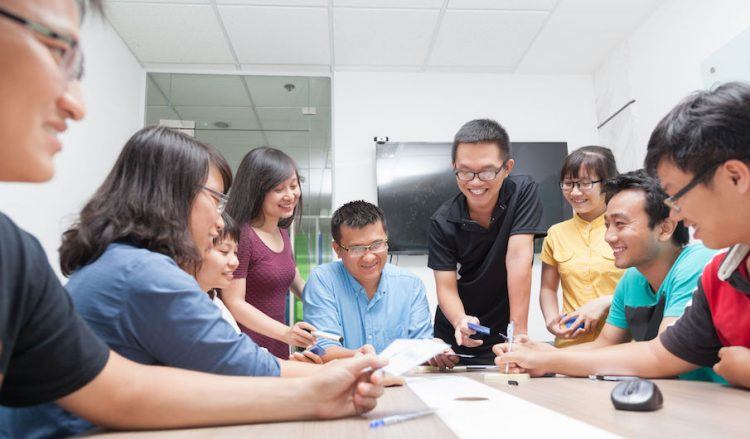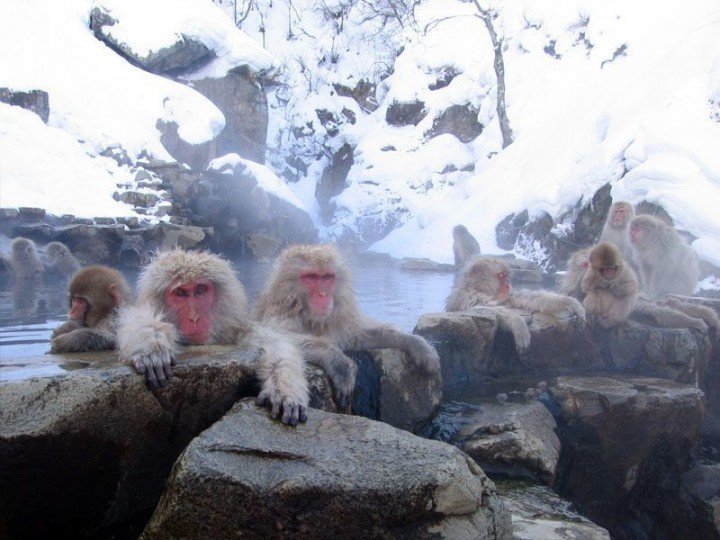
Image credit: Startup Fukuoka.
For the past few years, Fukuoka has been making a strong case to be a vibrant startup city.
This weekend, the city will host a new startup event – Torymon. Shota Morozumi, a hometown VC who sprung into action as the founding partner of firm F-Ventures last year, is leading up the arrangements. Named after the Japanese word meaning “gateway to success,” Torymon is focused on priming students and young founders for joining the startup ecosystem.
Tech in Asia is a media partner for this event. In the spirit of welcoming young startups to the industry, here is a collection of Fukuoka’s most promising early-stage startups.
ComQuest Ventures

A composite image of a plantation taken by a drone. Photo credit: Poladrone, modified by Tech in Asia.
ComQuest Ventures is arguably the most technical startup on this list. It creates hardware and software technologies for drones. In a recent collaboration, it partnered with Fukuoka city to test emergency response measures. The drone was responsible for 3D mapping an area and identifying the individuals in need of help. With a multi-national founding team, the company is willing to take on both domestic and international clients.
Fastmart

Photo credit: Pixabay.
Fastmart promises same-day delivery of items from drugstores and convenience stores. Shipping fees are pegged to the number of boxes needed to ship a user’s order. In a bid to maximize cart size, the app will tell a user how much space they have left before needing to pay about 290 JPY for a second box. The startup went into action last December and intends to expand into drone delivery this year.
SmileScore

Photo credit: gmast3r / 123RF.
SmileScore wants to help Japanese companies understand and retain their staff better. Employees access either the web or mobile app daily and indicate their happiness with the job by choosing one of 10 face emoji, ranging from 0 (very sad) to 10 (very happy). They can also leave brief notes. This data can then be viewed by company managers who can identify and tackle problems before they spiral. The service costs 25,000 JPY a month (about US$220) and is available for companies with over 30 team members. The startup has come out of beta, and has been accepting clients since December 2016.
Baspo

Photo credit: Wikimedia.
Baspo is like FastPass for Japanese hot springs. At a monthly rate of 980 JPY (about US$8.50), members can enter two hot springs at no additional cost. The average cost of hot spring entrance is about 600 JPY. Baspo is currently confined to Kyushu – Japan’s southern island and home to Fukuoka city.
Though part of Japan’s national – and international – identity, the hot spring industry has seen a slight downturn in recent years. Baspo explains that the rate of locations opening and closing results in a net loss of about 200 locations each year.
Reflux

Photo credit: Pexels.
Reflux is looking to improve the quality of work that freelancers produce. After spending a couple years as an IT consultant and project management service, Reflux has unveiled a new tool – Handcrowd. The startup posits that the popular freelancer sites in Japan do not adequately support project management and quality control. Handcrowd is like Slack for freelancers – a communication tool to keep project expectations, progress, and results on track. Of course, it also includes a feature for sending potential clients a service quote.
Lynks

Photo credit: Today Parents.
Lynks is an ecommerce startup focused on parents with infants and small children. An exchange marketplace, users can trade used clothes item for item. The only cost is shipping. The service is currently free to use, and intends to monetize via future premium users and advertising revenue.
Maisin

Photo credit: Pexels.
Maisin’s flagship product, Boostnote, has become a globally used tool since launching in 2014. It is a repository for programmers looking to access all their notes from a single location. In a rarity for a Japanese firm, its website is available in English, something that likely helped it reach users in 174 countries.
Thee Moment

Photo credit: 123rf.
Thee Moment was first spotted in Tech in Asia’s Fukuoka pitch event in 2015. Pre-launch at the time, the company has come a long way in the past couple years. Its primary service Unlocks is now used by organizations like the Fukuoka City and Kashi-Kaen, a local amusement park. The company can design augmented reality puzzles where users will get prompts or clues based on their physical location. Its content library continues to expand thanks to the inclusion of user-generated content.
Joy Create

Photo credit: Capitol Hill Champion.
Joy Create wants to help parents seeking to give their kids a wide array of experiences. Its service – Taiken – offers a variety of activities that elementary school children can participate in. Fees are set by the hosting organizations and activities can range from arts and crafts to learning how to be a news reporter or salesperson.
Converted from Japanese yen. US$1 = JPY 117.
This post Coming soon from Fukuoka – 9 young startups to watch appeared first on Tech in Asia.





















